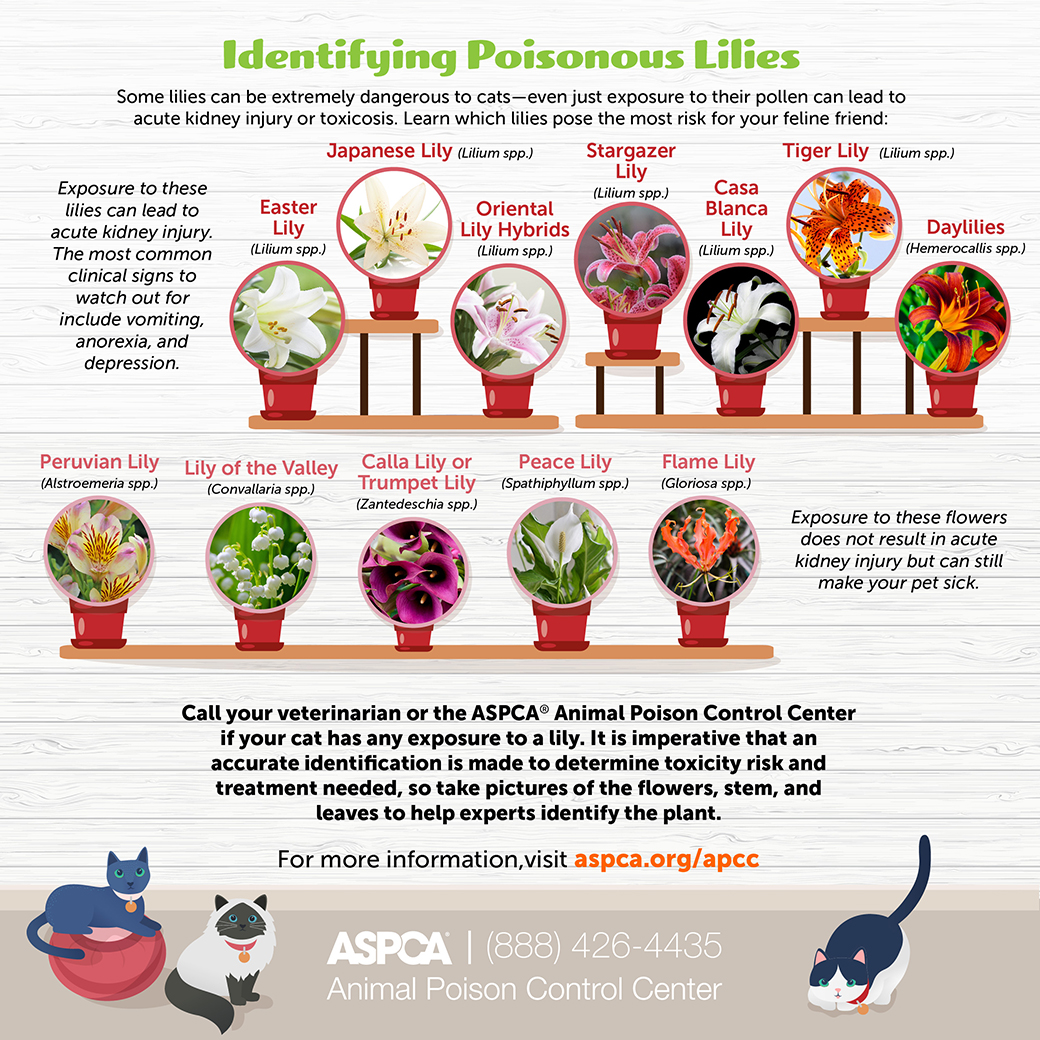Feline Toxins to Steer Clear of This Kitten Season


Cats are intelligent, curious, lovable and independent creatures; it’s probably why we love them so much! But they also have unique physiology which makes them more sensitive to some common household items like medications and plants. In order to help you keep your feline friends safe, the ASPCA Animal Poison Control Center (APCC) has pulled together a list of some worrisome feline toxins to be on the lookout for.
Leave the Lilies
Lilies (Lilium sp.) like Easter lilies, Asiatic lilies and Daylilies (Hemerocallis sp.) can cause acute kidney injury in cats. Since all parts of the plant are toxic and it does not take a lot to cause problems, it’s best to leave the lilies in the store. Unfortunately, signs may not show up until two to three days post an exposure, and by then treatment needs may be extensive. Signs of renal concerns include vomiting, a decrease in appetite, an increase in thirst and urination and you may notice that your cat is hiding more.
The best way to keep cats safe is to avoid bringing bouquets with lilies into your house. Even the best attempts to keep cats away from bouquets inside the house can be challenging. Fortunately, there are many safe, nontoxic options that can make beautiful bouquets!


Protect from Permethrin
Permethrin is an insecticide commonly used in topical flea and tick products for dogs. Cats are sensitive to permethrin, especially at concentrations found in dog topical products. When cats are exposed to permethrin they may exhibit unsteadiness on their feet, muscle tremors and, in severe cases, seizures.
When using topical flea and tick products, especially if you have both dogs and cats, make sure to read the label. Products containing high concentrations of permethrin will typically have warnings to not use the product on a cat.
Always read and follow the directions found on these products and do not use these products on your cats if not labeled clearly. You can also consult your veterinarian if you have any concerns about the products you are using on your pets.
Hide Over-the-Counter Medications
Common over-the-counter pain medications intended for people, like ibuprofen and acetaminophen, can cause liver and kidney injury, ulcers in the stomach and damage to red blood cells. Due to cats’ small size and unique physiology, ingestion of even just part of the pill may have serious consequences.
Curious cats may find these medications left out on tables, counters and nightstands. Teaching cats to keep off these surfaces can help save a lifetime of worry. Keeping counters clear or using double sided tape to deter curious kitties from these surfaces is a good idea. It can also help decrease the chance of medications getting knocked onto the floor where dogs may have access to them. Alternatively, keep these medications in a cabinet where snooping paws cannot get to.
Make sure these products are out of paws’ reach to keep your feline friends safe this kitten season!
If you suspect your pet has been exposed to any of these toxins, please contact your local veterinarian or APCC at (888) 426-4435 immediately for assistance.
Source: Read Full Article


